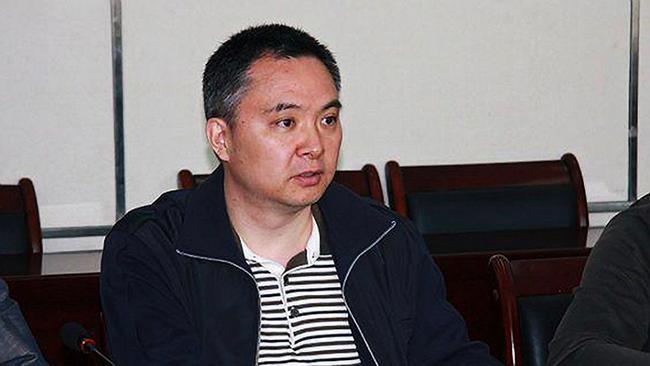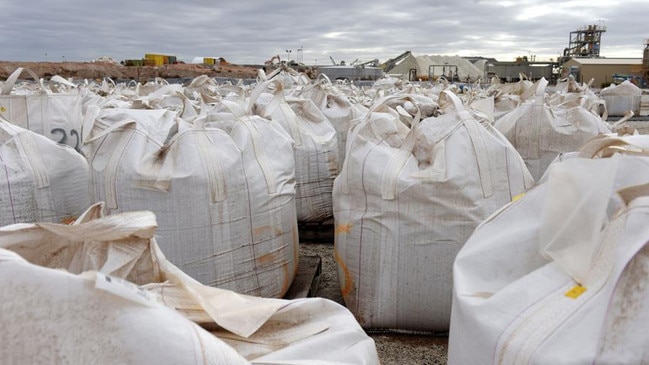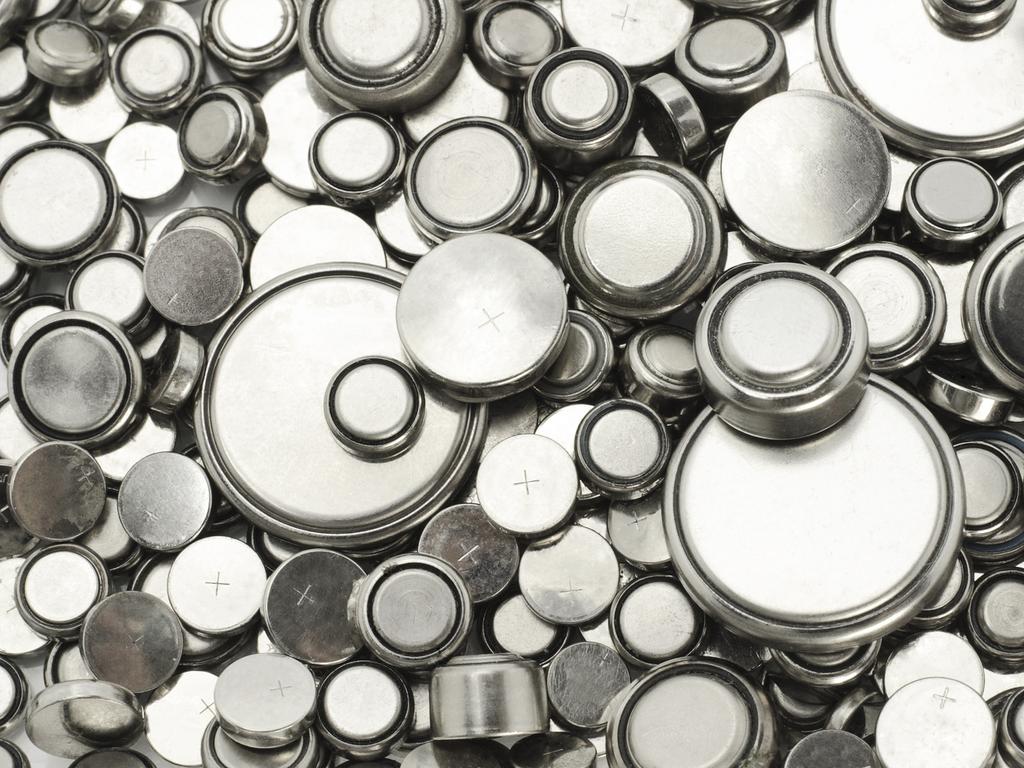The $1bn lithium mine China might pick up on the cheap
A West Australian lithium producer faces accusations it has dodged state mining royalties while shifting its profits to China, amid a messy battle for control.

A West Australian lithium producer faces accusations it has dodged state mining royalties while shifting its profits to China, amid a messy battle for control for one of Australia’s few operating lithium mines.
The Weekend Australian understands the WA government’s Department of Mines has told the owners of the Bald Hill lithium mine to explain its relationship with a Chinese lithium buyer, why it is selling the battery-making material at rates far below levels achieved by its Australian peers, and who really controls the company.
Bald Hill is set to export as much as 150,000 tonnes of lithium concentrate this year, sources say, worth more than $1.1bn at current market prices – if the company is able to export a product grading 6 per cent lithium.
But ahead of its return to production last year, the company locked in a sales deal with a Hong Kong-registered company that requires it to sell its output at a vast discount to current market prices – delivering windfall profits for the buyer, but leaving the Australian mine running on only wafer-thin margins.
The WA government inquiry is only the latest twist in the long-running saga at Bald Hill, which now includes a legal fight over its ownership between creditors and shareholders.
It also raises fresh questions about how the Albanese government will navigate the delicate balance between improving its fragile relationships with Beijing, against Labor’s desire to keep the processing of Australia’s critical minerals onshore.
A former tantalum mine, Bald Hill was reinvented as a lithium operation in 2017 amid rising interest in the lucrative raw material. In 2018 it joined Galaxy Resources’ Mt Cattlin and Mineral Resources’ Mt Marion facility as the state’s only producing lithium mines, trying to cash in on booming prices and demand.
But by the end of 2019 the mine, then owned by ASX and Singapore-listed Alita Resources, had been mothballed as the lithium price collapsed, and creditors took charge of the company.
Galaxy, now trading as Allkem on the ASX, made a play for the mine by buying up its debt, but instead sold out to China Hydrogen Energy (CHEL). CHEL made an application to the Foreign Investment Review Board to take control of the company, but withdrew in April 2020 when then treasurer Josh Frydenberg indicated he may move to block the deal.
CHEL then sold the same debt to US-registered company Austroid, which has now been waiting for two years – as the lithium price boomed again – for permission from the FIRB to formalise its ownership of the company.

At the time of the deal with CHEL, Alita owed $53.4m, with most creditors estimated to recover as little as 10c in the dollar.
But in reality, just who owns the debt in Alita, which is running the mines, and who is buying the lithium is an opaque and tangled mess. Several threads lead back to the family of billionaire Chinese businessman Que Wenbin.
Mr Que, according to Forbes Magazine, made his fortune in herbal medicines and through control of Sichuan Western Resources – which Morningstar describes as a conglomerate with mining interests, along with the development and manufacture of “lithium-ion battery materials and related batteries products” and “new energy” cars.
Austroid is run by his son Mike Que. It stepped in with a $70m offer for the debt controlled by CHEL in 2020. FIRB may have been more likely to smile on Bald Hill’s acquisition by a US-registered company rather than one directly controlled by Chinese interests.
Tenement records held by the WA mines department show that CHEL retains a mortgage over the Bald Hill mining and exploration tenements. The mortgage was registered in early 2020 and remains in place, the records show.
Mike Que is also a director of Lithco No 2 Pty Ltd, the Alita subsidiary currently operating Bald Hill mine. His name and signature are also on the contract The Weekend Australian has sighted to sell lithium to Hong Kong.
And that is where concerns about the contract pricing, and the state government’s inquiry into potential transfer pricing and royalty-dodging, enters the picture.
The contract between the company that operates the mine, Lithco No.2 Pty Ltd, and Hong Kong-registered Yihe Cleantech Material Limited was signed in March last year, as prices of the battery-making materials surged.
Yihe extended a $30m secured loan to the company as part of the offtake agreement.
At that time consultancy Benchmark Mineral Intelligence, which publishes monthly pricing reports on lithium contract prices, put the average price of Australian concentrate grading 6 per cent lithium at $US3263 a tonne.
In its March 2022 report, Benchmark said the low-end contracts – the legacy of older agreements yet to reflect broader market movements – were selling lithium concentrate for about $US1800 a tonne, with top-end sales worth $US4725 a tonne.
But even the average price was up 39 per cent on the previous month, and had almost doubled since the start of the year.
The Weekend Australian understands the five-year contract between Lithco and Yihe includes a price range from $US800 to $US1500 a tonne for 6 per cent lithium concentrate, with clauses discounting the final price if the material does not meet specifications. It also included a clause that allowed the parties to seek a variation if “fundamental or structural” changes emerge in the way the lithium market operates, rather than simply if market prices changed.
While most lithium miners keep the details of their own offtake contracts confidential, and the spot market for lithium concentrate is small, industry sources say most modern contracts include a reference to the final price of refined chemicals – allowing them to rise and fall in line with broader market movements.
Lithium concentrate has since surged to more than $US6000 a tonne, with other Australian miners reaping massive profits on the back of shortages of the material.
Bald Hill is a small mine with relatively high operating costs. Sources close to the Bald Hill mine say its operating costs this year are expected to average about $1150 a tonne, suggesting its Australian profits are likely to be wafer-thin on current contract prices. But that suggests the contract allows Yihe to access some of the cheapest lithium on global markets, with the company likely to reap windfall profits from a deal that was already well beneath benchmark pricing when it was signed.

McGrathNicol, acting as the administrator of Alita, has said in shareholder updates there it has been assured there is no relationship between Austroid and Yihe.
But the sharp difference between the price of Bald Hill concentrate and that of its competitors has triggered the interest of the WA mines department, which administers the state’s mineral royalties payment system.
Lithium mines pay a 5 per cent royalty on the price of concentrate at the port, and the department keeps a close eye on the export sales price of commodities to make sure the taxpayer gets its fair share of the state’s mineral wealth.
In 2018, an iron ore royalty dispute with the state government, related to allowable deductions rather than transfer pricing, cost BHP $250m to settle.
While the WA mines department has not launched any formal action over Bald Hill’s exports, Department of Mines, Industry Regulation and Safety (DMIRS) compliance director Tyler Sujdovic confirmed on Friday it was reviewing the company’s payments and sales arrangements.
“DMIRS is aware of allegations involving royalty underpayments by the operators of a lithium mine in Western Australia,” he said, adding it was “liaising with the company to assess its royalty compliance under the Mining Act”.
A spokesman for Lithco said on Friday the company took its legal and regulatory obligations seriously. “We work closely with the traditional owners, the local community and our commercial partners to ensure our Bald Hill mine continues to deliver social, environmental and economic benefits for WA and the nation,” he said.
“As supporters of the West Australian government’s future battery and critical minerals strategy, we take our legal, regulatory and financial obligations very seriously and work closely with all government agencies. This includes DMIRS and we continue to provide any and all relevant information in response to their queries as they liaise with us about allegations that have been put to them by a third party.”
Jim Chalmers last month blocked a Chinese investment fund from doubling its stake in WA rare earths play Northern Minerals, and faces a similar decision on the eventual ownership of Bald Hill.
The FIRB must now make a decision on whether Austroid can take ownership of the company.
Austroid is understood to have invested heavily in returning Bald Hill to production, and is now believed to be owed as much as $250m, including the value of the original debt bought from CHEL.
With lithium prices still running high, the mine is likely to still be worth far more than that.
In January, ASX-listed IGO and Chinese partner Tianqi Lithium put down a $136m bid for Essential Metals, which controls a lithium deposit not far from Bald Hill, seen as a signal the cashed-up duo could also be preparing a buyout offer for the operating mine.
The FIRB delay has also led to separate litigation between Canaccord, an equity holder in Alita before it was placed in receivership, and Austroid.
Pressure is mounting for FIRB to make a decision, having pushed it back for more than two years. Its failure to rule has led to legal questions about whether Austroid can seize control as the debt holder, or whether the riches now coming from lithium should be shared with equity holders.

In an unusual receivership battle, the deal that Austroid made to purchase the Bald Hill debt – which failed to attract much interest from rivals – received only conditional approval from the judge, which is why it is the subject of litigation. The deal had a 12-month sunset clause inserted by the judge that required Austroid to win FIRB approval, as well as the approval of ASIC and its Singaporean equivalent to relieve them from takeover provisions because the move would effectively wipe out the rights of equity holders.
Austroid has sought and received multiple extensions to this clause because it has not yet received any of the three required sign-offs to complete the deal.
In the meantime, and unfortunately for Austroid, lithium prices have soared to record highs.
Canaccord’s lawyer Leon Zwier, partner at Arnold Bloch Leibler, has argued in the Supreme Court that the current deal with Austroid – which cannot complete because of lack of regulatory approvals – is not in the best interest of all parties concerned.
Mr Zwier has referred to Section 435A of the Corporations Act 2001, which states that an insolvent company should be administered in a way that, “(a) maximises the chances of the company, or as much as possible of its business, continuing in existence; or (b) if it is not possible for the company or its business to continue in existence, results in a better return for the company’s creditors and members than would result from an immediate winding up of the company”. The matter will next be heard by the Supreme Court on March 13.
“Alita’s deed of company arrangement left the door open for all shareholders who invested their capital to come back in, should the price of lithium increase. And it has,” Mr Zwier said. “Canaccord is now trying to open that door for all shareholders and is inviting others to follow.”




